Comments/Commentary
CEG submitted comments in response to the U.S. Environmental Protection Agency’s Request for Information seeking public comment on core design aspects of the Greenhouse Gas Reduction Fund. CEG’s comments focus on the importance of providing technical assistance funding support through the GGRF, particularly in support of projects being developed by under-resourced organizations and in service of historically marginalized communities.
Allowing low-income-serving entities to take direct payment of a tax credit they would not otherwise be allowed to take in order to offset the cost of adding solar and storage, both for relief of energy burden and for resilience, could increase the amount of solar and storage on low-income single-family homes, effectively addressing a deficiency in the Inflation Reduction Act.
CEG strongly recommends that the Treasury Department and the IRS fully account for the carbon emissions associated with powering electrolysis production of hydrogen through grid electricity and that the agencies do not allow for offsetting these emissions through market-based procurement mechanisms, such as RECs and PPAs.
CEG submitted comments to the Massachusetts Energy Efficiency Advisory Council recommending that equity provisions be developed and implemented into the ConnectedSolutions program.
Clean Energy Group submitted comments opposing the development of 84 megawatts of gas combustion turbines proposed by Passaic Valley Sewerage Commission for its main wastewater treatment facility in Newark, New Jersey.
Comments submitted in response to DOE’s RFI regarding the implementation and structure of a DOE Funding Opportunity Announcement to fund regional hydrogen hubs. This submission reflects several of CEG’s concerns with the H2Hub program.
Comments submitted to the ICC as stakeholder input to its energy storage proceedings addressing cost-benefit valuation for energy storage.
CEG testified virtually and submitted written comments regarding the renewal of the Pittsfield Generating Company LP’s operating permit renewal by the Massachusetts Department of Environmental Protection.
CEG joined two dozen organizations in drafting and submitting a response to the New York Public Service Commission in opposition to a proposed “zero emissions” program that would make technologies like hydrogen combustion and renewable natural gas eligible under New York State’s Clean Energy Standard.





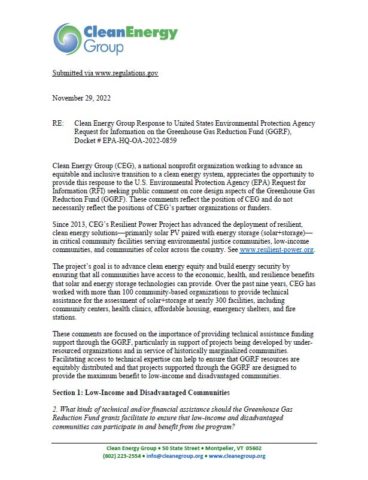
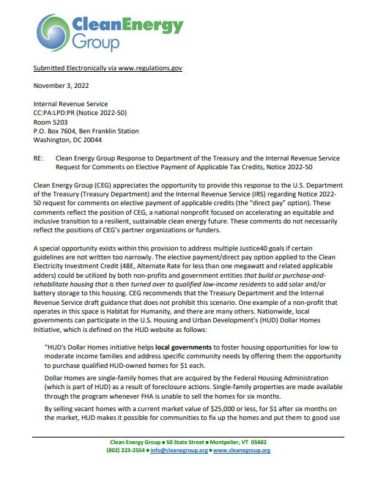
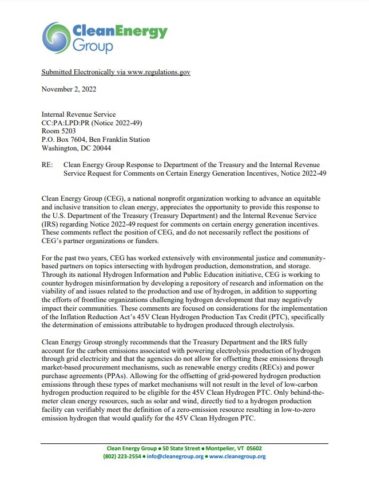
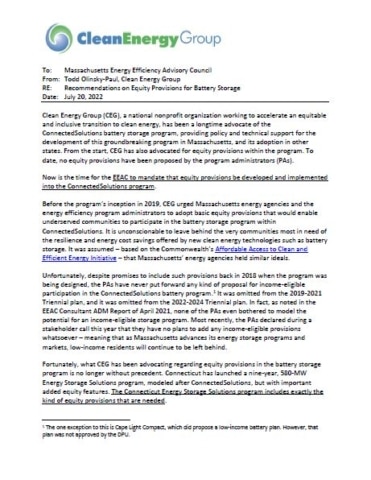
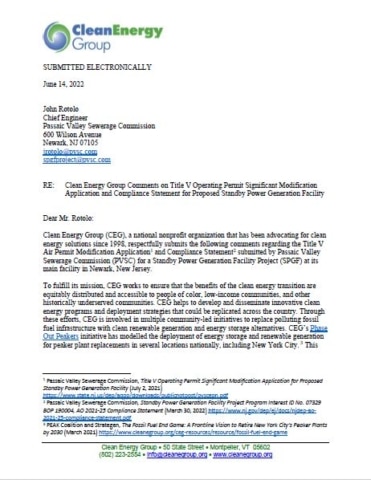
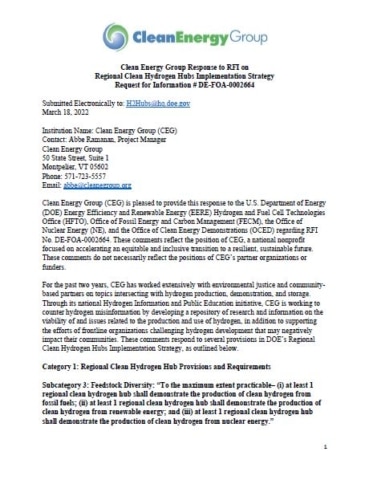
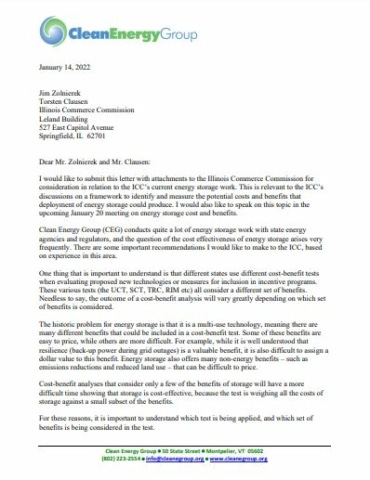
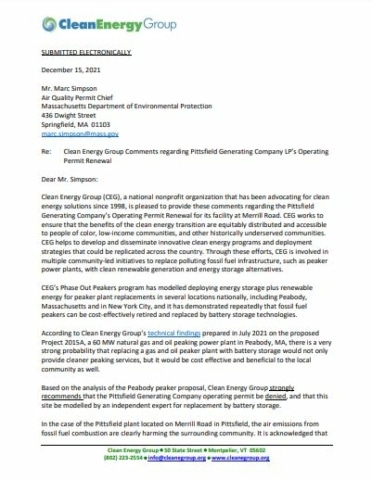
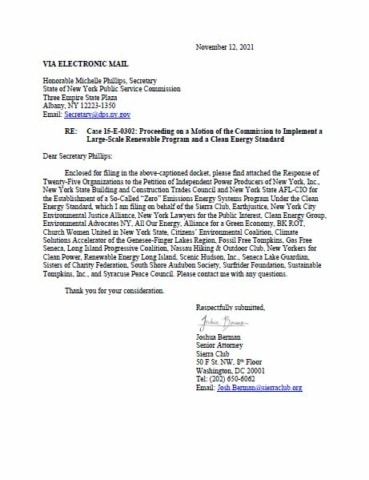
Comments on New Jersey Energy Storage Incentive Program Straw Proposal
Clean Energy Group and the Clean Energy States Alliance submitted comments to the New Jersey Board of Public Utilities on the New Jersey Energy Storage Incentive Program Straw Proposal.